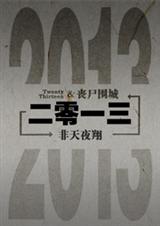一千零一夜-天方夜谭-1001 Nights(英文版)-第56部分
按键盘上方向键 ← 或 → 可快速上下翻页,按键盘上的 Enter 键可回到本书目录页,按键盘上方向键 ↑ 可回到本页顶部!
————未阅读完?加入书签已便下次继续阅读!
ntured himself and gripping it fast with both hands; let his body float with the current; which carried him on till it cast him into a whirlpool which none might enter and be saved therefrom。 With this he fell to crying out and saying; 〃Save a drowning man!〃 And there came to him folk of the keepers of the river and said to him; 〃What ailed thee to cast thyself into this grievous peril?' Quoth he; 〃It was I myself who forsook the plain way wherein was salvation and gave myself over to coveting and perdition。〃 〃O fellow;〃 said they; 〃why didst thou leave the way of safety and cast thyself into this destruction; knowing from of old that none may enter herein and be saved? What hindered thee from throwing away what was in thy hand and saving thyself? So hadst thou escaped with thy life and not fallen into this perdition; from which there is no deliverance; and now not one of us can rescue thee from this strait。〃 So the man gave up hope of life and lost that which was in his hand and for which his soul had prompted him to venture himself and perish miserably。 And I tell thee not this parable; O king;' added Shimas; 'but that thou mayst leave this contemptible thing that diverteth thee from thy duties and look to that which is mitted to thee of the governance of thy people and the maintenance of the order of thy kingdom; so that none may see fault in thee。'
'What wouldst thou have me do?' asked the king; and Shimas said; 'Tomorrow; if thou be in good health and case; give the folk leave to e in to thee and look into their affairs and excuse thyself to them and promise them good governance and prosperity。' 'O Shimas;' answered the king; 'thou hast spoken advisedly; and tomorrow; if it be the will of God the Most High; I will do that which thou counsellest me。' So the vizier went out from him and told the folk what he had said to him; and on the morrow the king came forth of his seclusion and bade admit the people; to whom he excused himself; promising them that thenceforward he would deal with them as they wished; wherewith they were content and departed each to his dwelling。
Then one of the king's women; who was his best beloved of them and most in honour with him; went in to him and seeing him pale and thoughtful over his affairs; by reason of that which he had heard from his chief vizier; said to him; 'O king; how es it that I see thee troubled in mind? Doth aught ail thee?' 'No;' answered he; 'but my pleasures have distracted me from my duties and I know not what hath possessed me to be thus negligent of my affairs and those of my subjects。 If I continue on this wise; ere long the kingdom will pass out of my hand。' 'O king;' rejoined she; 'I see that thou hast been duped by thy viziers and ministers; who wish but to torment and spite thee; so thou mayst have no pleasure of this thy kingship neither enjoy ease nor delight; and would have thee consume thy life in warding off trouble from them; till thy days be wasted in toll and weariness and thou be as one who slayeth himself for another's benefit or like the boy and the thieves。' 'How was that?' asked the king; and she answered; 'It is said that
The Boy and the Thieves。
Seven thieves once went out to steal; according to their wont; and fell in with a poor orphan boy; who besought them for some to him; 〃Wilt go with us; O boy; and we will feed thee and clothe thee and entreat thee kindly?〃 And he answered; saying; 〃Needs must I go with you whithersoever ye will and ye are as my own people。〃 So they took him and fared on with him till they came to a garden; and entering; went round about therein; till they found a walnuttree laden with ripe fruit and said one to another; 〃Look which is the lightest and smallest of us and make him climb the tree。〃 And they said; 〃None of us is smaller than this boy。〃 So they sent him up into the tree and said to him; 〃O boy; touch not aught of the fruit; lest some one see thee and do thee a mischief。〃 〃How then shall I do?〃 asked he; and they said; 〃Sit among the boughs and shake them with thy might; so that which is thereon may fall; and we will pick it up。 Then; when thou hast made an end of shaking down the fruit; e down and take thy share of that which we have gathered。〃 So he began to shake every bunch at which he could e; so that the nuts fell and the thieves picked them up and ate 'some' and hid 'other some' till they were all full; except the boy; who had eaten nought。
As they were thus engaged; up came the owner of the garden and said to them; 〃What do ye with this tree?〃 〃We have taken nought thereof;〃 answered they; 〃but we were passing by and seeing yonder boy on the tree; concluded that he was the owner thereof and besought him to give us to eat of the fruit。 So he fell to shaking the branches; that the nuts dropped down; and we are not at fault。〃 Quoth the master to the boy; 〃What sayst thou?〃 And he answered; 〃These men lie; but I will tell thee the truth。 It is that we all came hither together and they bade me climb the tree and shake its branches; that the nuts might fall down to them; and I obeyed them。〃 〃Verily;〃 said the master; 〃thou hast brought thyself into parlous case; but hast thou profited to eat aught of the fruit?〃 And he said; 〃I have eaten nought thereof。〃 〃Now know I thy stupidity and folly;〃 rejoined the owner of the garden; 〃in that thou hast wroughten to ruin thyself and advantage others。〃 Then said he to the thieves; 〃Go your ways: I have no resort against you。〃 But he laid hands on the boy and punished him。 On like wise;' added the favourite; 'thy viziers and officers of state would sacrifice thee to their interests and do with thee as did the thieves with the boy。' 'Thou sayst sooth;' answered the king; 'and I will not go forth to them nor leave my pleasures。'
Then he passed the night with his wife in all delight till the morning; when the chief vizier arose and assembling the officers of state; together with those of the folk who were present with them; repaired with them to the palace; glad and rejoicing 'in the anticipation of good'。 But the door opened not nor did the king e forth unto them nor give them leave to go in to him。 So; when they despaired of him; they said to Shimas; 'O excellent vizier and acplished sage; seest thou not the behaviour of this boy; young of years and little of wit; how he addeth falsehood to his offences? See how he hath broken his promise to us and hath failed of that for which he engaged unto us; and this it behoveth thee join to his other sins; but we beseech thee go in to him yet again and see what is the cause of his holding back and refusal to e forth; for we doubt not but that the like of this fashion eth of his depraved nature; and indeed he hath reached the utmost pitch of stiffneckedness。'
Accordingly; Shimas went in to the king and bespoke him; saying; 'Peace be upon thee; O king! How eth it that I see thee give thyself up to paltry pleasures and neglect the great affair whereto it behoveth thee apply thyself? Thou art like unto a man; who had a milch camel and ing one day to milk her; the goodness of her milk caused him fet to hold fast her halter; which whenas she felt she pulled herself free and made of into the desert。 Thus he lost both milk and camel and the mischief that betided him overpassed his profit。 Wherefore do thou look unto that wherein is thy welfare and that of thy subjects; for; even as it behoveth not a man to sit for ever at the kitchen door; because he needeth food; so should he not pany overmuch with women; by reason of his inclination to them。 A man should eat but as much food as will stay his hunger and drink but what will ward of the pangs of thirst; and in like manner it behoveth the man of understanding to content himself with passing two of the fourandtwenty hours of his day with women and spend the rest in ordering his own affairs and those of his people。 For to be longer than this in pany with women is hatful both to mind and body; seeing that they mand not unto good neither direct thereto: wherefore it behoveth a man to accept from them neither speech nor deed; for indeed I have heard tell that many men have e to ruin through their women; and amongst others 'I have heard tell of' a certain man who perished; for that he obeye

![一千个深吻 [出书版完结]封面](http://www.9wshu.net/cover/noimg.jpg)



